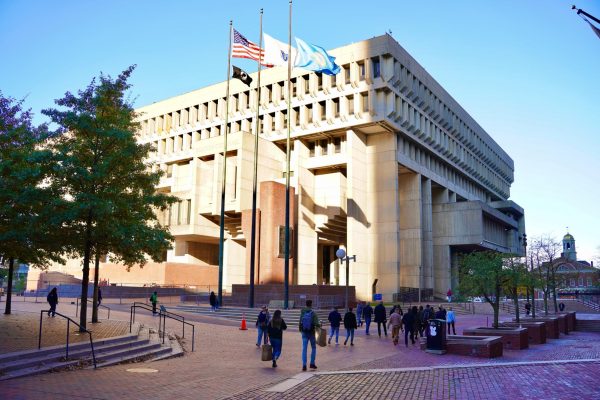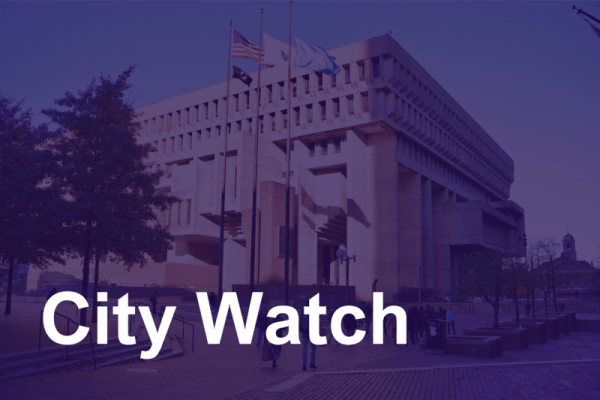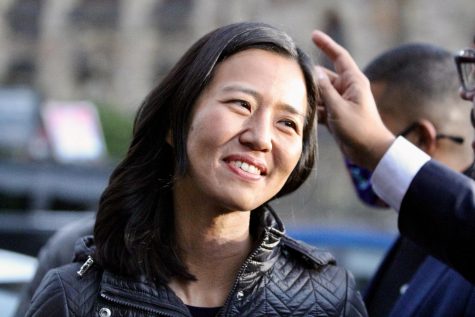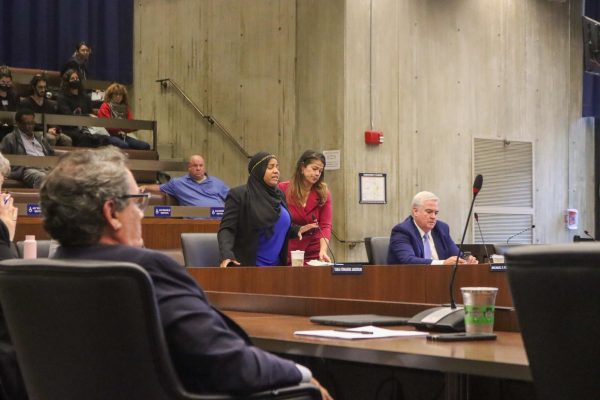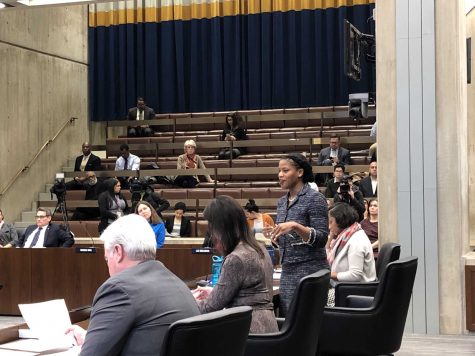City council proposed a $12 million cut to the BPD overtime budget for 2021
November 18, 2020
Boston City Council held a hearing on Monday afternoon with representatives from the Boston Police Department to discuss two dockets on the city’s police overtime budget.
The Bureau of Administration and Technology’s Chief, Superintendent James Hasson, Deputy Director and Chief Financial Officer Lisa O’Brien, and Deputy Superintendent James Chin of the Boston Police Department (BPD) attended the hearing.
For fiscal year 2020, the BPD spent $72.5 million out of a $60 million budget, spending $13 million more than the allotted budget. The city council proposed a $12 million cut to the BPD overtime budget, which would bring the BPD overtime budget of fiscal year 2021 down to $48 million, Councilor Kenzie Bok, chair of the committee on ways and means said. The city of Boston is facing a $50 million deficit, Councilor Flaherty said.
Overtime Payments
The council demanded transparency and accountability from the BPD, and requested a plan to make these budget cuts sustainable. Police overtime payments are down 17.9% from last year, Hasson said, but the council said that these decreased payments may be due to the impact of COVID-19 or other temporary factors in the number of police needed.
“We had a comprehensive plan to reduce overtime numbers,” Hasson said. “But unfortunately with the increased crime and potential presidential elections and demonstrations and COVID, we’ve been unable to implement that up to this point.”
Of the many issues with overtime payments, the council focused most on four hour minimums. These mandate that officers are paid for a minimum of four hours at a time, regardless of how much overtime they are actually working. Deputy Director O’Brien referenced the sum of $257,000 in overtime hours paid but not worked. These officers may have only worked half an hour or one hour overtime, but got paid for four hours of work. That’s almost 4,000 hours of overtime paid but not worked, due to the minimum overtime agreement in officers’ contracts.
Superintendent Hasson said that these overtime minimums are collectively bargained, and that any changes to contracts of the officers will have to occur at the bargaining table. Solutions such as abolition of four hour minimums and capping officer overtime per month will have to be negotiated with powerful police unions.
Councilor O’Malley said one solution could be a “shift length experiment,” which he cited has been taking place in Everett, Massachusetts, and some other major cities. Police officers in these cities work fewer days of longer shifts, which has significantly curtailed spending on overtime. Shift lengths are also collectively bargained by police unions, Hasson said, but there is some room for adjustment in emergency situations.
Minimum Staffing
The BPD maintains minimum staffing requirements to ensure enough officers are on duty to maintain public safety. However, the number of minimum staff required changes rapidly based on four factors: amount of crime, population, number of 911 calls, and response time to incidents. These are reviewed weekly, and Superintendent Hasson said that there is not an objective standard by which these staffing levels are measured. Councilors repeatedly requested the formula that is used to calculate staffing over the course of the nearly four hour hearing, but representatives from the BPD did not provide the information.
Councilor Campbell requested that this information be publicly accessible so that the council and residents can be better informed of these police decisions. “I think it’s been made abundantly clear that there are some major concerns,” she said. “And the question is, how are we going to be more transparent and then when something doesn’t add up be held accountable?”
Councilor Arroyo said that he voted against the coming fiscal year’s budget in June, specifically because he thought BPD would be unable to meet the proposed cuts in overtime pay. There was never a plan presented to the council on how the police would meet these targets, and the minimum staffing requirement remains unclear to the council.
“We certainly need that plan,” said Arroyo. “I can’t emphasize this enough, otherwise it’s just us sitting here for two hours trying to make sense of these numbers without what we’re trying to calculate it by.”
Court Overtime
Arroyo, sponsor of docket #1039, referenced his career as a public defender prior to joining the council to raise concerns about the way BPD officers are paid overtime for court appearances. Officers must be off-duty to receive four hours of court overtime pay, and are mandated to appear if summoned.
There are discrepancies between the officers’ reported overtime and the times of reports that officers submit, Arroyo said, sourcing information publicly available through the Woke Windows Project.
After a piece published by the Boston Globe in 2012, “For some Boston officers, extra money comes easy,” the BPD created a court supervisor position to sign officers in and out of the courtroom. However, that court supervisor position is held by a BPD employee, usually a sergeant, which presents a potential conflict of interest. Councilors also expressed concern that this process is being handled on paper, not through electronic records accessible to the public.
Arroyo referenced 133 officers who had filed police reports not in or near the courthouse during the period of time they had filed for court overtime. That number represents only a fraction of all police reports, since Woke Windows doesn’t have access to as much information as BPD itself. The court supervisor intended to oversee this process signed off on these officers being in court while they filed reports elsewhere. According to Hasson, there is an open investigation on the subject. Councilor At-Large Julia Mejia noted that in September, nine current and former BPD officers were charged in an overtime fraud scheme, which is also under investigation.
“There’s a number of concerning trends,” Arroyo said. “Since 2014, officers have worked less hours in courts. However, their pay has been a higher percentage for non-worked hours.“
Councilor Campbell expressed concern that the $12 million cut to the BPD overtime budget passed by the city council in June would not be met this fiscal year due to unsustainable spending. The BPD overtime budget was surpassed by $12.5 million last year, and the BPD has not enacted a system to prevent these overspenditures from happening again. The issue has been consistent since she joined the council, and there is mounting pressure to strategize about how this spending can be curbed long term.
“I want folks to know that we’re pushing for transparency and accountability in the systems and department reform, not a knock on individual officers that are doing a hard job every day,” Campbell said. “The question still remains how, with those concerns, do we honor the commitment that we made to folks publicly?”
“One of the most important aspects of the job of the city council is to be financial stewards,” said O’Malley. Given $50 million in deficit to the city funds, the council considers this a critical responsibility.
Superintendent Hasson repeatedly stressed the pressure that BPD is currently under. The police have worked additional shifts for protests and election day, in addition to the risk they face for COVID-19.
“What occurs in society is reflected in the department,” said Hasson. “We’re doing a phenomenal job trying to keep that overtime and replacement, the extended tours, that’s down significantly. You can see across the board. Court time has a 77% reduction, so we’re trying to come up with ways to get to that number.”
The council’s major concern is that reduced court time and overtime payments will rise again once COVID-19 passes. Courts operate at limited capacity, so decreases to court overtime are to be expected.
“This council and the public has patience for a structural transition,” said Bok. “I think what you hear impatience for is a plan to get there.”

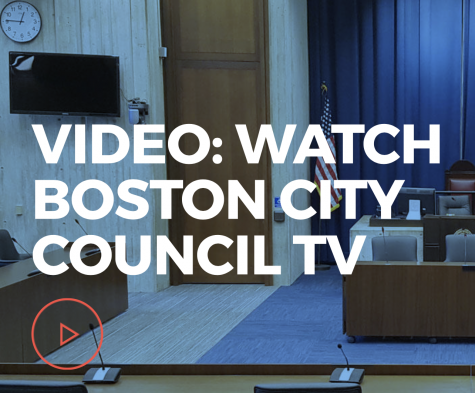

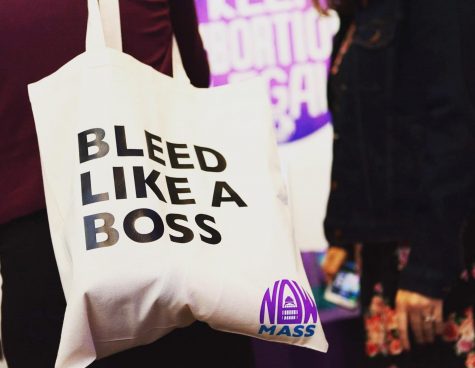
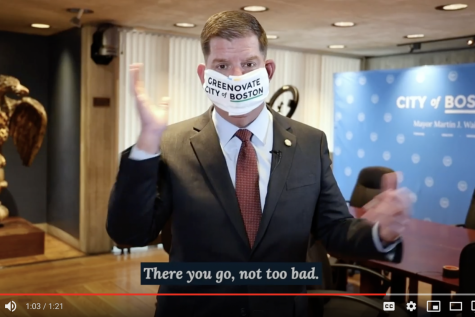


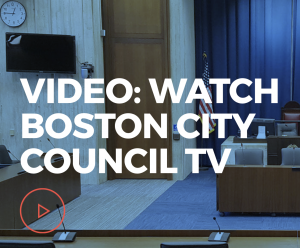




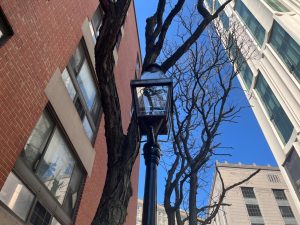
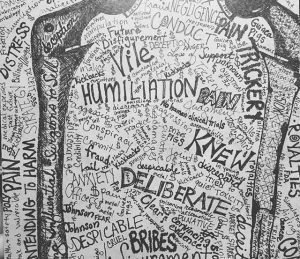
![Worcester, MA — Pearson’s recent piece “Lipstick on a Pig” contends with her self-perception. The title of the painting came to her first, “fixating in [her] head quite a lot,” Pearson said.](https://thescopeboston.org/wp-content/uploads/2024/03/2-300x200.jpg)
